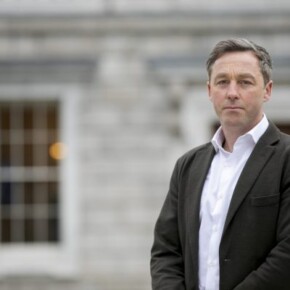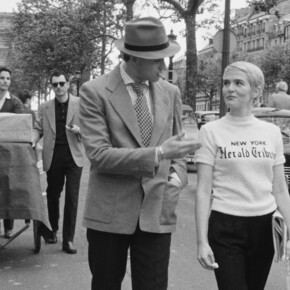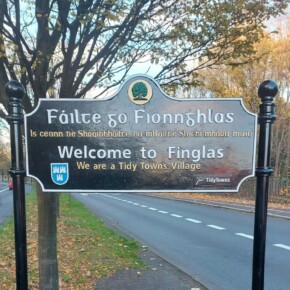Hayes joins ballot in star-studded Dublin Bay South
Mike Finnerty 06 Aug 2024
The Dublin Bay South election race has seen another character added to its colourful cast in the form of Social Democrats councillor Eoin Hayes.
Hayes, who won a seat on Dublin City Council in Kimmage-Rathmines in June, has been tapped to appear on the ballot for the party in an already-heaving constituency, which is remaining at four seats.
With Dublin Bay South already containing heavy hitters such as Sinn Féin’s Chris Andrews, former Lord Mayor and Green poll-topper Hazel Chu, Fianna Fáil man Jim O’Callaghan, Labour leader Ivana Bacik and Lord Mayor of Dublin James Geoghegan lining out for Fine Gael, Hayes is looking to make the leap from councillor to TD in a star-studded constituency.
Hayes proved to be one of the surprise packages of the local elections, winning a seat in Kimmage-Rathmines at the expense of Sinn Féin, Fianna Fáil and People Before Profit.
Hayes said that his election campaign is personal, saying he is a “life-long renter and aspiring homeowner; I have first-hand experience of the effects of a housing crisis that has been mismanaged by 13 years of consecutive Fine Gael governments.”
A consultant by day, Hayes said that his priorities on Dublin City Council (and, he hopes, the Dáil), will be assuring more affordable housing, better public transport and creating more green spaces.
He said that local issues are “too often rooted in poorly drafted national legislation”, echoing comments by party deputy leader and TD Cian O’Callaghan earlier this year.
In an interview with Southside People earlier this year, O’Callaghan explained that his party would look to designate more powers to local communities or local groups, saying that local democracy in Ireland has been “hollowed out.”
“In the view of the party, the best way to bring back local democracy is building it back up,” Callaghan said.
Hayes said that the party represents “a new type of politics in Ireland, based on fairness, inclusiveness and equality.”
“During the general election campaign, it is my intention to share the Social Democrats’ vision for a better Ireland with the people of Dublin Bay South.”
Party leader Holly Cairns said that Hayes is a “dedicated and hard-working public representative and has already shown his commitment to the people in Kimmage-Rathmines in the short time he has been on Dublin City Council.”
“He exemplifies the type of change that the Social Democrats offer and would be an incredible TD for the area.”
Noting that Hayes won a seat at the expense of other established parties, she said that there is “now a real opportunity for the people of Dublin Bay South to vote for meaningful change.”
Hayes’ campaign hopes will be bolstered by Cian Farrell winning a seat for the party in South-East Inner City, the other local electoral area that makes up Dublin Bay South.
The party failed to win a seat in Pembroke, home of Chu and Geoghegan, but outperformed Sinn Féin and People Before Profit with 6.2% of first preferences.
Former Green Party leader Éamon Ryan topped the poll in Dublin Bay South in 2020, being easily elected on the first count with 22.4% of first preferences.
Sinn Fein’s Chris Andrews, Fianna Fáil’s Jim O’Callaghan and then-Minister for Housing Eoghan Murphy were the other victors on the day, but the upcoming general election promises to be something of a redrawing of the Dublin electoral map.
The Social Democrats have contested Dublin Bay South on three occasions, with their 6.7% debut outing in 2016 representing their best electoral performance in the constituency thus far.
2020 saw the party slip to 4.5% of first preferences, and slipping further to 3.2% in the 2021 by-election.
Hayes’ own constituency consists of a Green poll-topper (Carolyn Moore), a Fine Gael councillor who transferred in from the Northside (Punam Rane), a Labour candidate (Fiona Connelly), Pat Dunne Of Right2Change (Joan Collins’ split away party from Independents4Change), and Patrick Kinsella of Fine Gael.
Kimmage-Rathmines is every bit as diverse as its older Dáil sibling, but there is a precedent for parties of the left and government parties to co-exist at both a local and Dáil level.











